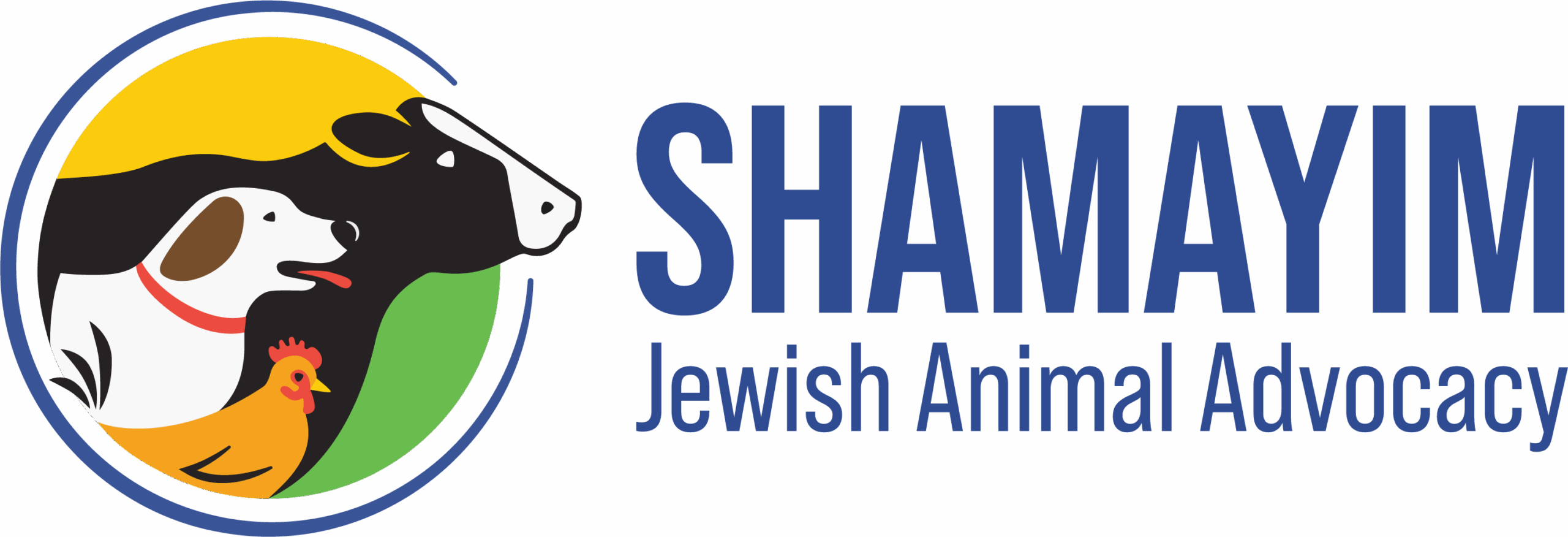Eating meat and dairy is one of the most wasteful things that someone can do, directly opposing the Jewish teaching of Bal Tashchit, meaning, “do not destroy” or “do not waste”. Beyond the final destruction of life that comes from killing animals to eat them, there are also many forms of destruction and waste involved in keeping these farmed animals alive. In this piece, I will show you that becoming vegan is the most effective way to align with the teachings of Bal Tashchit and Judaism more generally.
Bal Tashchit first appears in the Tenakh, instructing Jews not to destroy fruit-bearing trees during war (Deuteronomy 20:19), and has since become the topic of much philosophical debate. The Rambam broadened the scope of Bal Tashchit to extend beyond just fruit trees, while the Midrash teaches us that indirect destruction is as forbidden as direct destruction. For example, cutting down a tree (direct destruction) and diverting a river to harm a tree (indirect destruction) are both violations of Bal Taschit.
The inclusion of indirect destruction is crucial for understanding how veganism is the most effective way to follow Bal Tashchit.
The first and most obvious cause of destruction involved in eating meat comes from killing the animals that are going to be eaten. The scale of this destruction is unimaginable, with over 83 billion farmed animals killed each year for meat consumption. When including fish, the total number of animals jumps to at least 1.2 trillion. These numbers don’t account for the millions of animals that are killed as by-products of farming, such as the 7 billion day-old male chicks killed each year simply because they cannot produce eggs. They’re usually shredded alive in a macerator. That’s 19 million baby chickens shredded to death each day as a result of people eating eggs. Bal Tashchit much?

For those animals that make it beyond the first day of life, there is even more waste and destruction associated with keeping them alive long enough to be used for meat, dairy, or to produce offspring.
Farmed animals are fed vast amounts of plants that humans can eat directly, such as soy, maize, and wheat. As animals are sentient living beings, like us, they consume energy to stay alive. Despite farmers’ best efforts to minimise this energy usage through confinement in cages, and selective breeding practices that produce animals such as ‘Frankenchickens’, animals are still inefficient at turning calories from plants into the calories we get from their meat. If we stopped farming animals and directly ate the crops grown for them instead, we could feed an additional 4 billion people each year.
If we all went vegan, we could stop misdirecting calories, produce enough food to solve world hunger and live within the teachings of Bal Tashchit.
Two-thirds of all antibiotics are used by farm animals. Antibiotics are used to help animals grow, as well as to reduce the risk of disease spreading in the cramped, dirty conditions found in most farms. The overuse of antibiotics causes antimicrobial resistance, making it harder to treat people who become ill. We are risking the ability to save people’s lives by farming animals for mass consumption. Bal Tashchit teaches us not to waste, but Judaism also teaches Jews to follow Pikuach Nefesh, the obligation for Jews to save a life. It is clear to see how reducing meat and dairy consumption aligns with Jewish teachings.
Veganism helps us reduce damage and waste in even more ways. Growing all this food to feed animals requires huge amounts of land, water, fossil fuels, artificial fertilizers and pesticides.
Over one-third of all habitable land on earth is used to farm animals, and beef production is the leading cause of deforestation. At a time when biodiversity is collapsing, and rainforests are being cut down at a rate of around 75,000 football fields (100,000 acres) per day, reducing meat and dairy consumption is the best way to stop the indirect destruction of nature and our rainforests. Don’t forget that according to the guidance on Bal Tashchit, indirect destruction and waste is just as bad as doing it directly.
Agriculture is responsible for nearly 70% of all freshwater use globally, the majority of which is associated with producing meat and dairy. On top of this, farming animals is a leading cause of water pollution due to manure and fertiliser runoff. This causes ’dead zones’ in our rivers and oceans where aquatic animals can’t survive. Again, it is clear that eating meat and dairy leads to the wastage and destruction of natural resources.
Going vegan is the ultimate way to live a life of Bal Tashchit. Not only do you save the lives of innocent animals, but you also reduce your negative impact on the planet. However, even if you are not ready to go fully vegan, simply reducing the amount of meat and dairy you consume will help you to reduce your environmental impact. Most people consume more protein than they need to meet their nutritional requirements, so even those people who still want to eat meat should consider reducing the amount they eat.
Bal Tashchit teaches us not to live a wasteful or destructive life, and should inspire us to drastically reduce the amount of meat and dairy we consume, and ideally become vegan. Imagine being able to reduce the suffering of animals while helping to save the planet. In fact, you don’t need to imagine it. You can start doing this today by swapping your smoked salmon bagel for a hummus one. Simple changes like these can allow you to live a life of Bal Taschit, a life more aligned with Judaism, and less aligned with destruction and waste.


Leave a Reply